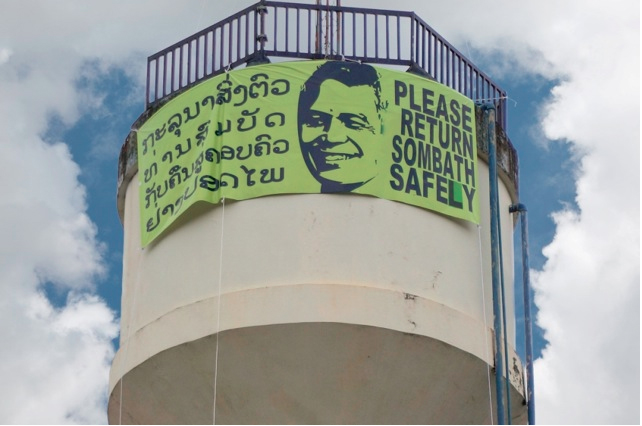Reuters: 31 August 2016
Activists have called on U.S. President Barack Obama to press Laos on its human rights record on issues such as illegal land concessions and forced evictions, when he visits the Communist country next week.
Obama is due to attend a meeting of the Association of Southeast Asian Nations (ASEAN) in the capital Vientiane, becoming the first U.S. president to visit Laos.
Campaigners urged Obama to use a bilateral meeting with Laos President Bounnhang Vorachith to discuss issues ranging from environmental contamination to the fate of prominent Lao human rights activist Sombath Somphone, who disappeared in 2012.
“We see this visit to Laos as a human rights test for President Obama and his administration,” said Phil Robertson, deputy director of Human Rights Watch’s Asia division.
“Are they prepared to come to Southeast Asia and speak publicly about the disappearance of such a prominent person as Sombath Somphone and talk about the ongoing rights violations that are taking place in Laos?” Robertson asked.
Sombath, a U.S.-educated activist focusing on rural development, went missing in Vientiane on Dec. 15, 2012. A video previously released by the authorities shows him being stopped at a police checkpoint before being led into a pickup truck.
Laos maintains the state is not involved in Sombath’s disappearance and police are still investigating, said Sombath’s wife Shui Meng Ng, adding that she has not had an update from police in more than two years.
Sombath’s disappearance and harassment of civil society members has had a “chilling effect” on freedom of expression, with many self-censoring over fears they will be punished, said Laurent Meillan, the acting regional representative of the U.N. Office for the High Commission of Human Rights.
Meillan also expressed concern about large scale development projects and land concessions impacting the rights of local communities.
According to HRW’s Robertson, the Lao government told civil society groups ahead of the ASEAN meeting that it would not permit various subjects to be discussed.
These include Sombath’s disappearance, hydropower projects, land issues or the rights of indigenous and LGBT people, he said.


 t the press conference organized today by The Sombath Initiative at the Foreign Correspondents Club of Thailand in Bangkok, the groups released
t the press conference organized today by The Sombath Initiative at the Foreign Correspondents Club of Thailand in Bangkok, the groups released 
 Human rights and democracy advocates are using next week’s Association of Southeast Asian Nations (ASEAN) summit in Vientiane, Laos, to draw attention to the country’s authoritarian regime.
Human rights and democracy advocates are using next week’s Association of Southeast Asian Nations (ASEAN) summit in Vientiane, Laos, to draw attention to the country’s authoritarian regime.

 Press conference at the
Press conference at the






 “Laos’ CSOs have lost face because of Sombath Somphone. We have lost the financial sources from donors because of him,” said Mr. Cher Her, vice chair of Laos’ ASCS/APF NOC.
“Laos’ CSOs have lost face because of Sombath Somphone. We have lost the financial sources from donors because of him,” said Mr. Cher Her, vice chair of Laos’ ASCS/APF NOC.